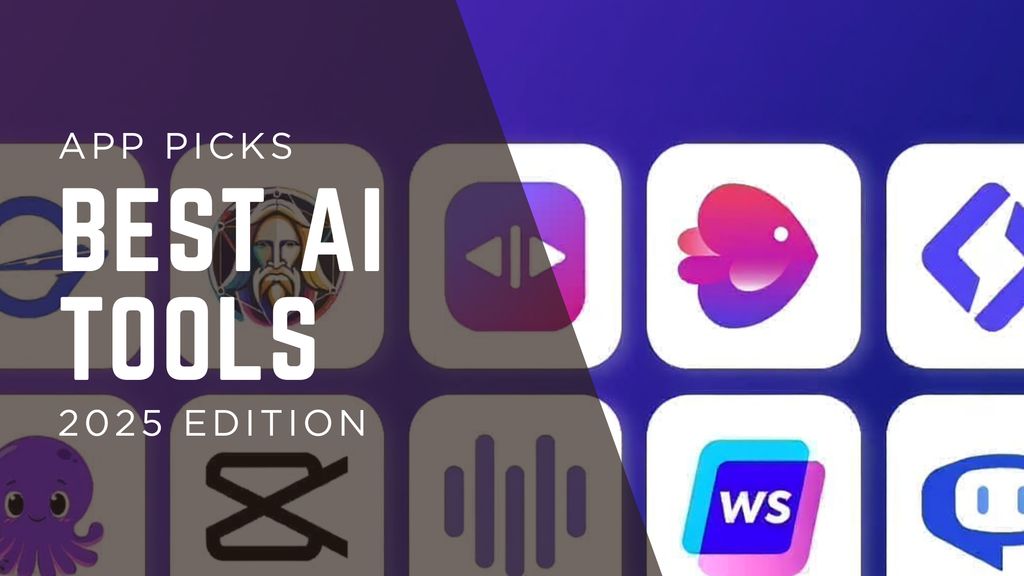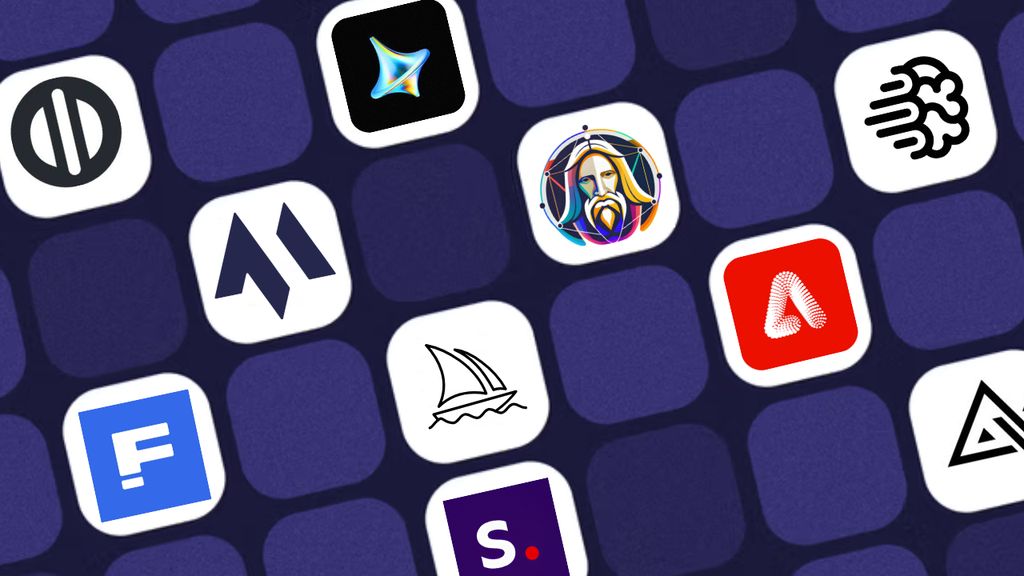5 Must-Try AI Emoji Makers in 2025 for Creators and Marketers


As of August 2025, digital conversations are increasingly emoji-first. A single sticker or tiny icon can express tone, identity, and humor faster than a full sentence. AI emoji generator tools are making it easier than ever to create unique, personalized icons for chats, branding, or memes. After testing the top platforms, here are the five best options worth trying this year.
Best AI Emoji Generators at a Glance
Tool | Best For | Input Types | Key Features | Free Plan |
Creators & teams | Text, image | Text-to-emoji, hybrid styles, brand kits | Yes | |
Casual users, memers | Text, emoji merge | Emoji Kitchen, instant PNG download | Yes | |
Marketers, designers | Templates, drag-and-drop | Brand customization, templates | Yes (limited) | |
Personal use, influencers | Selfie | Avatar stickers, animated packs | Yes (lite) | |
Messaging-heavy users | Text | Context-aware emoji recommendations | Yes |
Magic Hour
.jpg)
Magic Hour
Pricing
- Free plan available, paid from $12/month.
Pros
- Multi-input support: text, images, and styles
- Brand kit integration for professional use
- High-resolution outputs for chat apps and design platforms
- Cross-platform, works on both web and mobile
Cons
- Advanced customization features may feel complex at first
- Best collaboration features require a paid plan
Magic Hour has quickly become one of the most versatile AI visual tools, and its emoji generator feature is no exception. Instead of limiting you to simple text prompts, it allows hybrid workflows: combining written descriptions, reference images, and preset styles to produce expressive emojis. Teams can even create brand kits to keep emoji packs consistent across campaigns.
If you want a generator that balances playful creativity with professional output, Magic Hour is hard to beat.
In testing, Magic Hour consistently delivered emojis that looked polished and versatile, whether I prompted “cyberpunk smiley face” or uploaded a photo reference for a brand mascot. This dual-input flexibility reminded me of other multi-modal tools I reviewed in AI clothes generators, where layering styles with reference images resulted in more realistic outcomes. For professional teams, the ability to merge prompts and assets is what separates Magic Hour from one-off meme tools.
Another strong point is the brand kit function. For a campaign test, I generated a custom emoji set aligned with a corporate palette and exported them for Slack and WhatsApp. The results were consistent, polished, and reduced the need for additional editing. This level of brand control is similar to what I noted in Recraft V3 beginner’s guide, where HEX color matching played a critical role in scaling professional assets.
Finally, Magic Hour shows potential far beyond emojis. For example, users exploring AI QR code generators, AI subtitle tools will notice familiar workflows around speed, usability, and creative control. In practice, this makes Magic Hour not just an emoji generator but a platform you can extend across visual production pipelines.
MemeClip
.jpg)
MemeClip
Best for
Content creators, memers, and social media users who need expressive visuals on the fly.
Pros
- Free and web-based, no account required
- Text-to-emoji and emoji-merging features
- Instant, fresh results each time
Cons
- Focused on one-off emojis, not bulk sets
- Online-only, no dedicated app
MemeClip is built for speed and fun. It lets you create emojis instantly - whether you type “a cat holding bubble tea” or merge 🤖 + 🍕 into a single mashup. No login, no hidden costs, just fast emoji generation.
Best for content creators, memers, and social media users who need expressive visuals on the fly.
Where MemeClip shines is accessibility. In less than five seconds, I could create absurd combinations like “a dinosaur DJing at a rave” and drop them into Discord chats. Unlike Magic Hour, there are no advanced controls, but the lack of complexity makes it frictionless for casual users. This mirrors the instant gratification approach found in tools for TikTok AI video generators, where speed and novelty outweigh professional polish.
However, MemeClip’s simplicity comes at a cost. There’s no bulk generation or brand alignment, so it’s not ideal for marketing teams or design workflows. Still, for meme culture and quick reactions, the randomness often adds to its charm. I compared it to tools like AI background removers, which emphasize one single function, and found the philosophy similar: do one job, and do it fast.
Finally, MemeClip is a great option for testing creative prompts before moving them into a more serious tool. For example, I often prototype emoji ideas here and then refine them with Magic Hour’s hybrid workflows. This tiered strategy, similar to how creators combine Kling Pro and Veo 3 in video workflows, saves time while balancing quality.
Simplified Emoji Maker
.jpg)
Simplified
Best for
Social media managers and branding teams needing visual consistency.
Pros
- Rich template library
- Real-time preview
- Free plan with optional upgrades
Cons
- More suited to design-savvy users
- Premium exports locked behind paid plan
Simplified integrates emoji creation into its broader design platform. With drag-and-drop tools and a template library, it’s a great option for marketers or design teams who need consistent branding.
Simplified shines when branding consistency is essential. I tested it by generating emojis for a corporate campaign, and the ability to reuse templates while aligning with brand fonts and colors proved invaluable. Unlike MemeClip’s spontaneity, Simplified feels closer to professional design software, comparable to the structured workflows I described in AI subtitle generators.
The drag-and-drop editor also makes Simplified versatile beyond emojis. You can place emojis into broader marketing assets like posters or presentations. This integrated ecosystem reminded me of Nano Banana vs Flux Kontext comparison, where design-focused AI tools differentiate themselves from purely generative ones by offering broader editing pipelines.
That said, Simplified does have a steeper learning curve compared to casual tools. It’s best suited for teams who already use design platforms. In practice, it fits in the same category as Recraft V3, where learning the interface unlocks more reliable and brand-ready outputs.
Mirror AI

Mirror AI
Best for
Personal expression, influencers, and anyone who wants emojis that look like them.
Pros
- Highly personalized avatars
- Large sticker library, including GIFs
- Built-in emoji keyboard for easy sharing
Cons
- Mobile-only (iOS/Android)
- Subscription needed for full packs
Mirror AI specializes in selfie-based emojis and avatar packs. Upload a single selfie, and the system generates thousands of stickers-many animated-that mirror your appearance and style.
Mirror AI offers something few competitors can: personalization. By turning selfies into expressive emoji packs, it taps into the same demand driving AI talking photo platforms. For influencers and creators, this human connection translates directly into engagement.
During testing, I created a set of emojis that mirrored my own expressions. The likeness was surprisingly accurate and reminded me of workflows in AI clothes generators, where personalization drives the sense of authenticity. It’s not just an emoji-it feels like an extension of your identity.
The tradeoff, however, is platform limitation. Being mobile-only and subscription-gated means Mirror AI isn’t the best choice for professional teams. But for individuals looking to boost their online presence, it offers a uniquely engaging approach. It fits neatly alongside playful creative tools like Magic Hour, giving users expressive content they can deploy instantly.
EmojiAIl
.jpg)
EmojiAll
Best for
Professional communication and messaging-heavy workflows.
Pros
- Context-aware emoji recommendations
- Real-time suggestions in chat
- Lightweight, free to start
Cons
- Graphics are limited compared to visual-heavy tools
- Works best only when paired with heavy messaging use
EmojiAIl focuses less on visuals and more on context. Using natural language processing, it suggests emojis that fit the emotional tone of your messages. It’s a smart companion for global users since it supports multiple languages.
EmojiAIl represents a different approach to emoji generation-smarter, not flashier. In practice, it reminded me of AI assistants I’ve seen in agentic AI tools, where the system doesn’t just generate content but actively supports decision-making in real time.
When tested in WhatsApp and Slack, EmojiAIl suggested emojis that matched the tone of my text, like offering 🎉 when discussing milestones or 😓 when venting about deadlines. This predictive layer may not feel as exciting as visual design, but for heavy messaging users, it reduces friction dramatically.
Still, its biggest limitation is the lack of visual creativity. Unlike Magic Hour or Mirror AI, you won’t get personalized icons or unique art styles. Instead, it’s more of a companion tool, best paired with others. Similar to how Pixverse complements Veo in animation workflows, EmojiAIl shines when combined with a more visual generator.
How I Tested These Tools
I spent one week testing each platform across both casual chats and professional workflows. My evaluation criteria included ease of use, customization depth, export formats, and how well the AI handled text or image inputs. Tools were tested on both desktop and mobile where available.
Market Trends
Emoji generation is moving beyond fun stickers into professional use cases. Brands now create emoji sets for campaigns, communities, and events. The biggest trend is hybrid workflows: combining text, selfies, and design templates to produce highly customized icons. Expect future tools to add animated emoji packs and better integration with messaging platforms.
Final Takeaway
- If you want professional-grade emojis for campaigns, start with Magic Hour.
- For fast, playful creations, MemeClip is a top pick.
- If you need team-oriented design templates, Simplified works best.
- For personal avatars, Mirror AI stands out.
- For context-aware chat suggestions, EmojiAIl adds value.
Experiment with a few of these - your perfect emoji generator depends on whether you’re making memes, scaling brand visuals, or just having fun in chats.
FAQ
What is the best free AI emoji generator?
MemeClip is the easiest to try without signups or fees, while Magic Hour also offers a free tier with more advanced options.
Can I create emojis from selfies?
Yes. Mirror AI specializes in turning selfies into expressive emoji packs and avatars.
Which tool is best for branding?
Magic Hour and Simplified are best for teams needing consistent brand visuals across campaigns.
Do these tools work on mobile?
Yes. Mirror AI is mobile-only, while Magic Hour and MemeClip run smoothly on both web and mobile.




